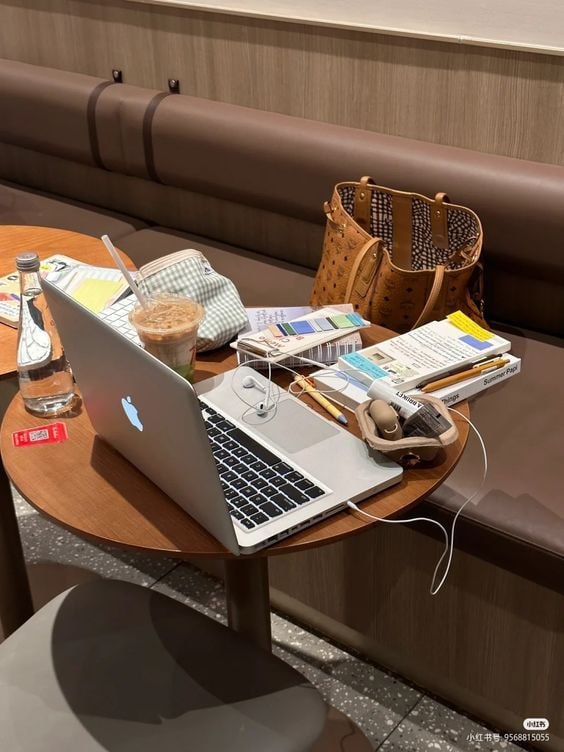
Доброй ночи, друзья! 🌙
Чтение сложных академических текстов может быть непростым. Сегодня обсудим стратегии, которые помогут вам понимать материалы быстрее и эффективнее.
✏️ Полезные стратегии:
1. Skimming:
Прочитайте текст быстро, чтобы понять основную идею. Ищите ключевые слова, заголовки и подзаголовки.
2. Scanning:
Ищите конкретную информацию, например, даты, цифры или имена.
3. Highlight Key Points:
Подчеркивайте важные фразы и делайте заметки на полях.
4. Use Context:
Если вы не знаете слово, попробуйте понять его значение по контексту.
📌Практика:
Прочитайте отрывок из научной статьи и выделите:
1️⃣Главную мысль.
2️⃣Три ключевых слова.
3️⃣Пример или доказательство, приведенное автором.
Вот текст для практики: ⬇️
Чтение сложных академических текстов может быть непростым. Сегодня обсудим стратегии, которые помогут вам понимать материалы быстрее и эффективнее.
✏️ Полезные стратегии:
1. Skimming:
Прочитайте текст быстро, чтобы понять основную идею. Ищите ключевые слова, заголовки и подзаголовки.
2. Scanning:
Ищите конкретную информацию, например, даты, цифры или имена.
3. Highlight Key Points:
Подчеркивайте важные фразы и делайте заметки на полях.
4. Use Context:
Если вы не знаете слово, попробуйте понять его значение по контексту.
📌Практика:
Прочитайте отрывок из научной статьи и выделите:
1️⃣Главную мысль.
2️⃣Три ключевых слова.
3️⃣Пример или доказательство, приведенное автором.
Вот текст для практики: ⬇️
The Importance of Developing Critical Thinking Skills in Academic Studies
Critical thinking is a fundamental skill that serves as the cornerstone of academic success. In the context of higher education, where students are expected to evaluate complex information, form reasoned judgments, and engage in intellectual debates, the ability to think critically is indispensable. This article explores the importance of critical thinking in academic studies and offers insights into how students can cultivate this essential skill.
Understanding Critical Thinking
Critical thinking involves the objective analysis and evaluation of an issue to form a judgment. Unlike rote memorization, it requires active engagement with content, questioning assumptions, and considering multiple perspectives. For instance, when analyzing a historical event, a critical thinker would evaluate the credibility of sources, consider potential biases, and explore the broader context to develop a well-rounded understanding.
In academic settings, critical thinking goes beyond comprehension; it emphasizes synthesis, evaluation, and application. It enables students to connect theories to practical scenarios, distinguish between evidence-based arguments and opinions, and challenge existing paradigms with innovative ideas.
Why Critical Thinking Matters in Academia
1. Enhanced Problem-Solving Abilities
Critical thinking equips students with the tools to approach problems systematically. By breaking down complex issues into manageable components, students can identify root causes and propose effective solutions. For example, in engineering or medical fields, critical thinking is pivotal for diagnosing issues and designing innovative responses.
2. Improved Academic Writing
Academic writing demands clarity, coherence, and substantiation of arguments. Critical thinkers can construct persuasive essays and research papers that demonstrate depth of understanding and originality. They skillfully integrate evidence, cite credible sources, and present balanced viewpoints.
3. Preparation for the Professional World
Employers value critical thinking as one of the top soft skills. Whether in business, science, or the arts, professionals are often required to analyze data, anticipate challenges, and make strategic decisions. Cultivating critical thinking during academic studies prepares students for these real-world demands.
Strategies to Develop Critical Thinking Skills
1. Question Everything
Adopt a curious mindset. Ask "why," "how," and "what if" questions to delve deeper into concepts. For instance, instead of accepting a theory at face value, consider its limitations and alternative explanations.
2. Engage in Active Reading
When reading academic texts, highlight key arguments, note counterarguments, and summarize conclusions. This practice helps in internalizing and critically assessing content.
3. Participate in Debates and Discussions
Academic discussions provide a platform to articulate ideas, listen to opposing views, and refine your thought process. Engage actively in class debates, seminars, and group projects to sharpen your reasoning skills.
4. Reflect on Feedback
Constructive criticism from professors and peers offers valuable insights into areas of improvement. Reflect on this feedback and apply it to refine your approach.
